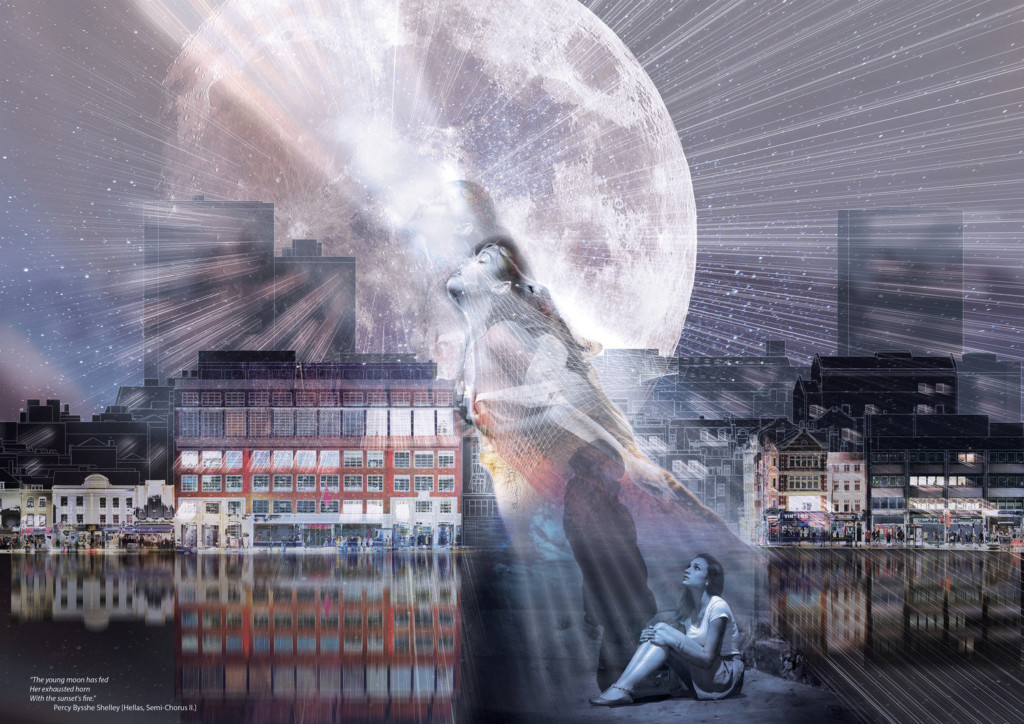
The Moon Catcher is a student project that has received several prestigious architecture awards. This year, it has been displayed at the Venice Biennial Architecture Exhibition - Time Space Existence 2021, which aims to rethink architecture and re-envision new ways of living and promoting innovative approaches. This is the fifth edition of the exhibition presented by the European Cultural Centre, and the project can be seen in Palazzo Mora from May 22, 2021, until November 21, 2021. From mid-July, the exhibition will also be available online at www.timespaceexistence.com as a virtual tour.
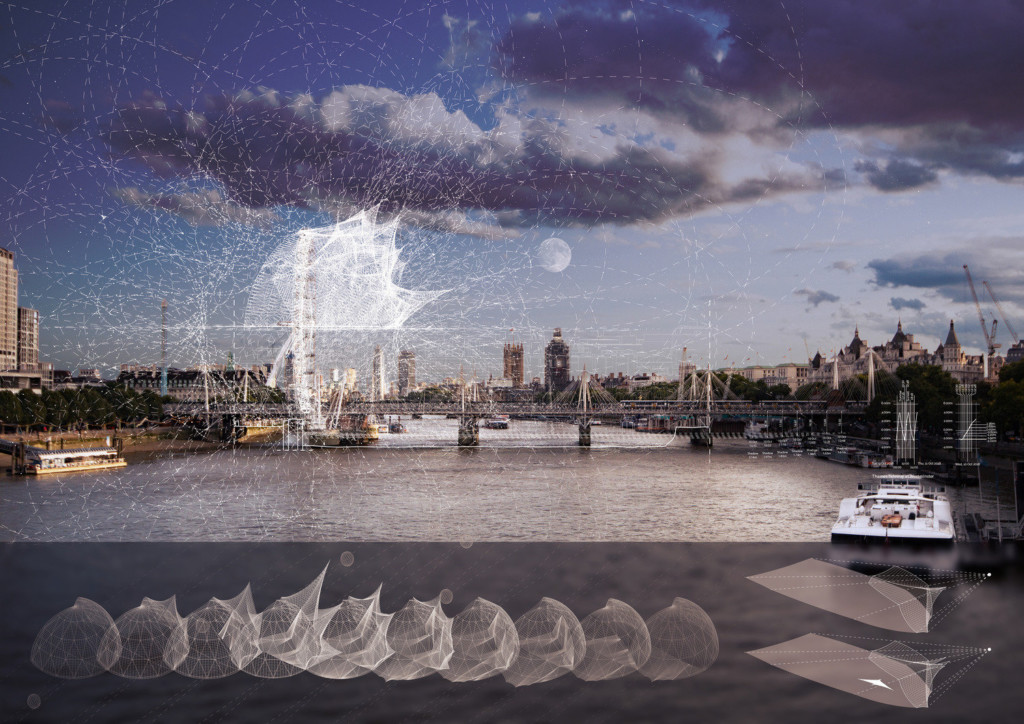
Contemporary problems in London have exacerbated social media hate crimes, which are often associated with increased mental health issues that have led to a large percentage of young people suffering from anxiety, depression, and even considering suicide.
Approximately 2 million Londoners have experienced detrimental effects to their mental health this year, largely attributable to social media technologies and emerging trends, such as the Posthumanism – we already have sexbots able to actualize our desires – isolating even the most intimate aspects of our lives. The Loneliness Experiment, conducted by Radio 4, indicated that 40% of people aged 16-24 feel lonely and disconnected, despite an abundance of “online” friends on social media platforms such as Facebook.
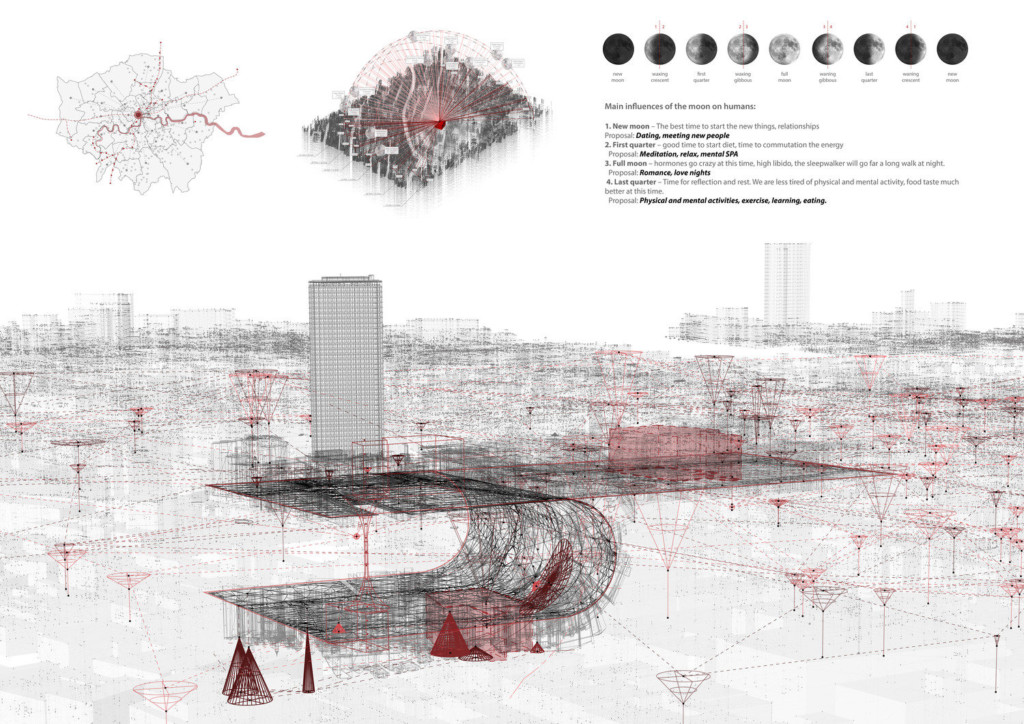
Acquiescing Soho’s notorious history of nightlife culture and the sex industry, the Moon Catcher proposes a diurnal space whereby young people are able to connect with nature’s beauty, escape the blue light of their screens, and experience the pleasures offered by Epicureanism, i.e. of body and mind. In daylight, users can broaden their knowledge of cosmology and mental health, and stretch out on the craterous urban beach. At dusk, collective moonbathing becomes the dernier cri, welcoming extraterrestrial pleasures from the moon’s 8-phase cycle, before retiring to a private hotel room at the first light of dawn.
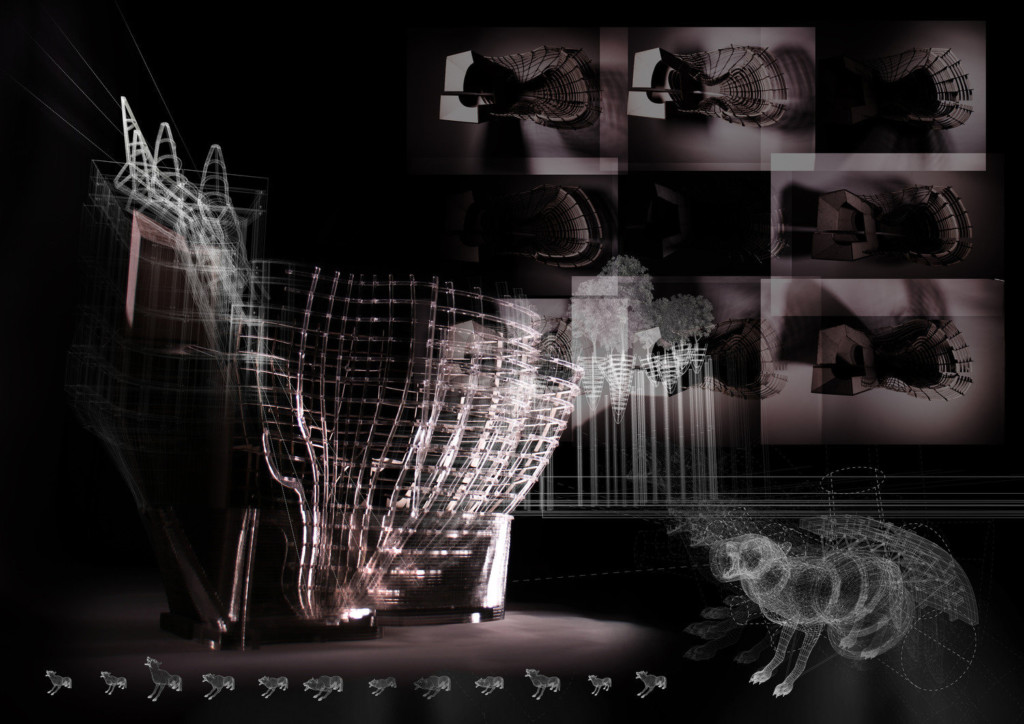



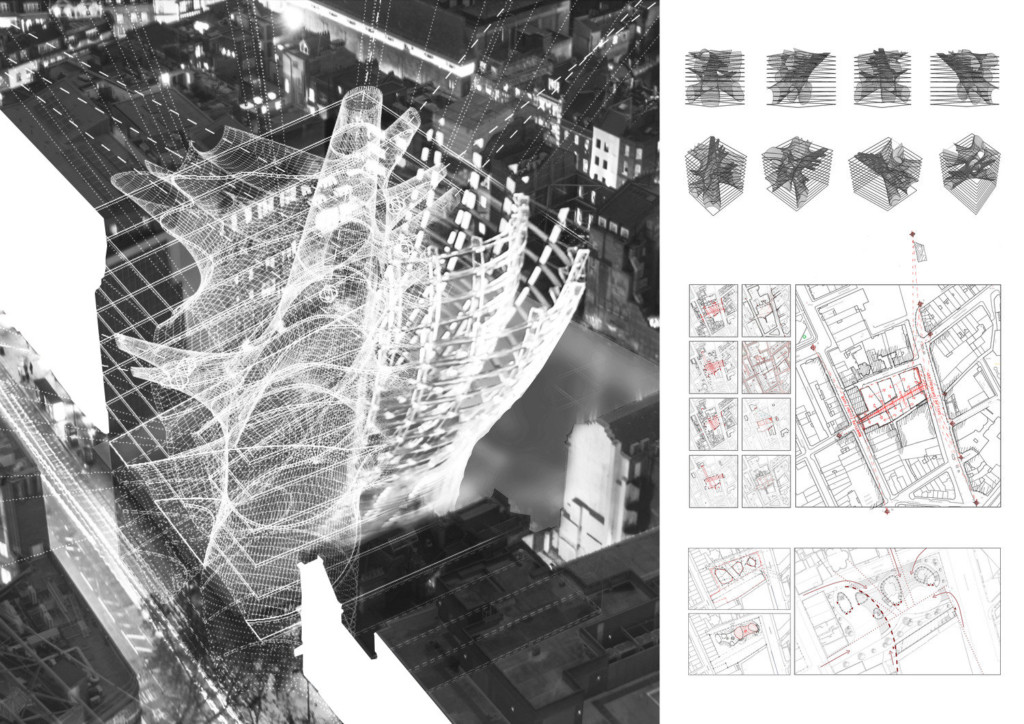
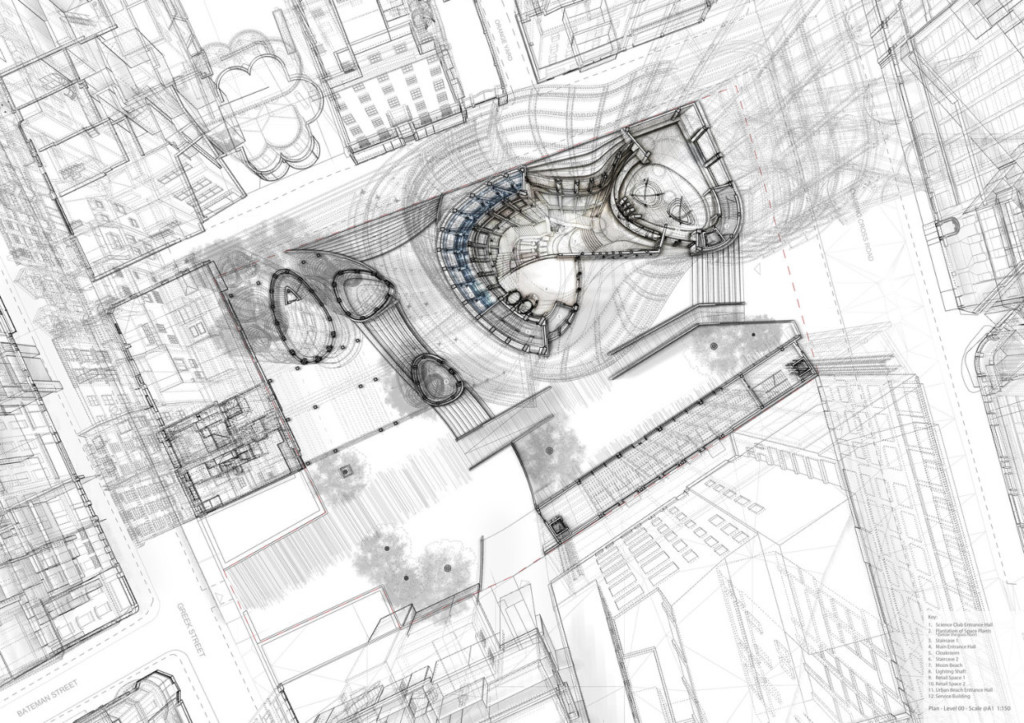
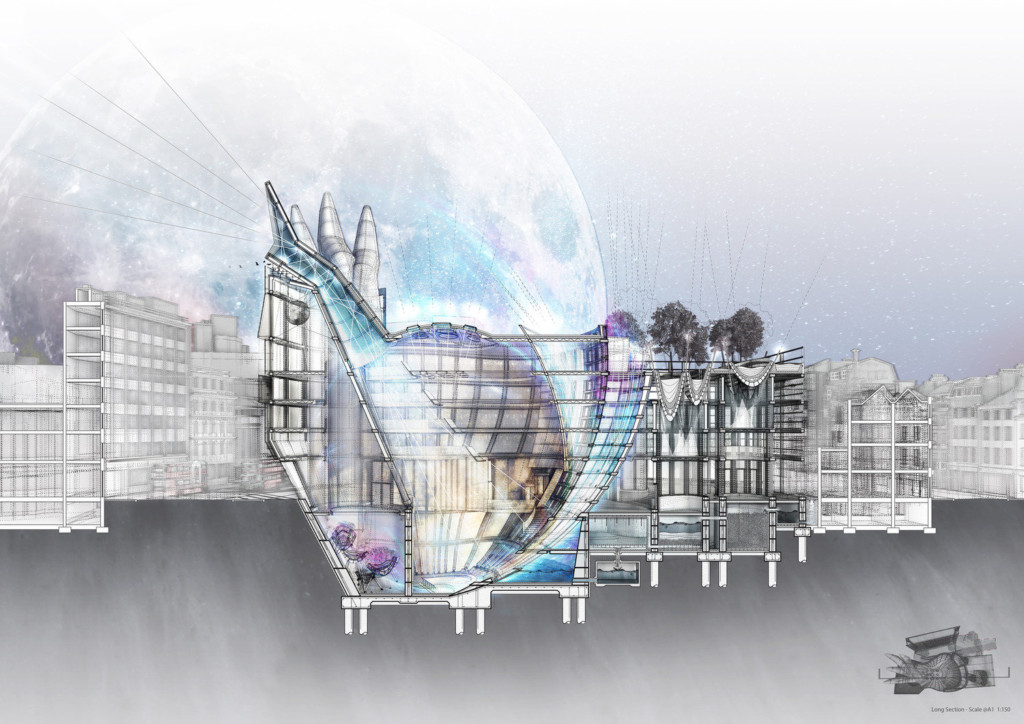

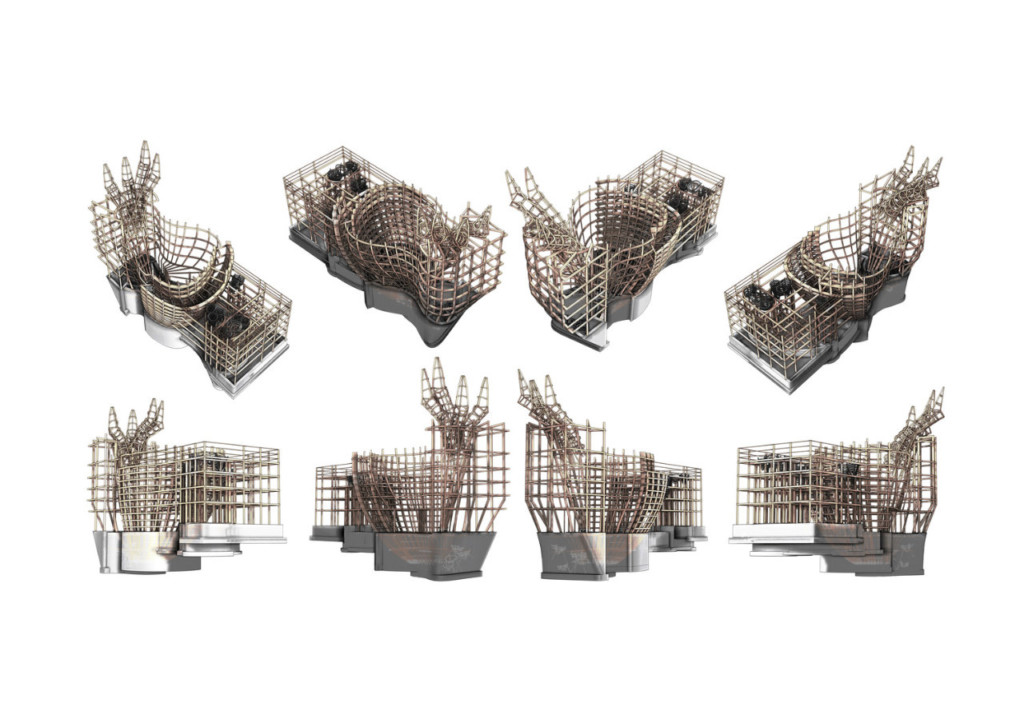
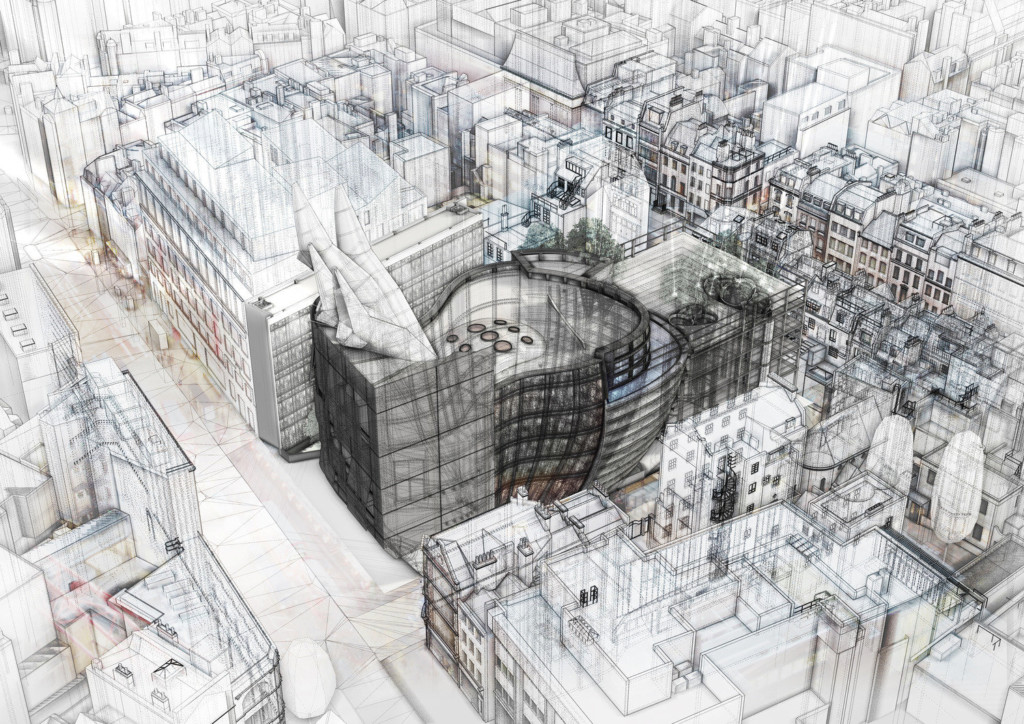
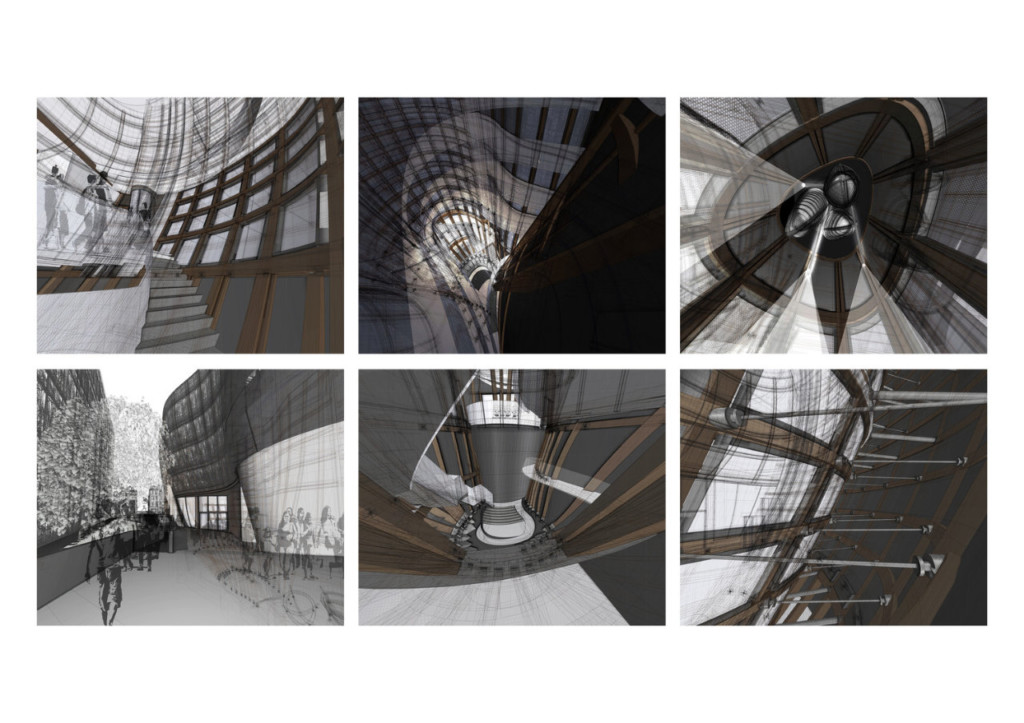
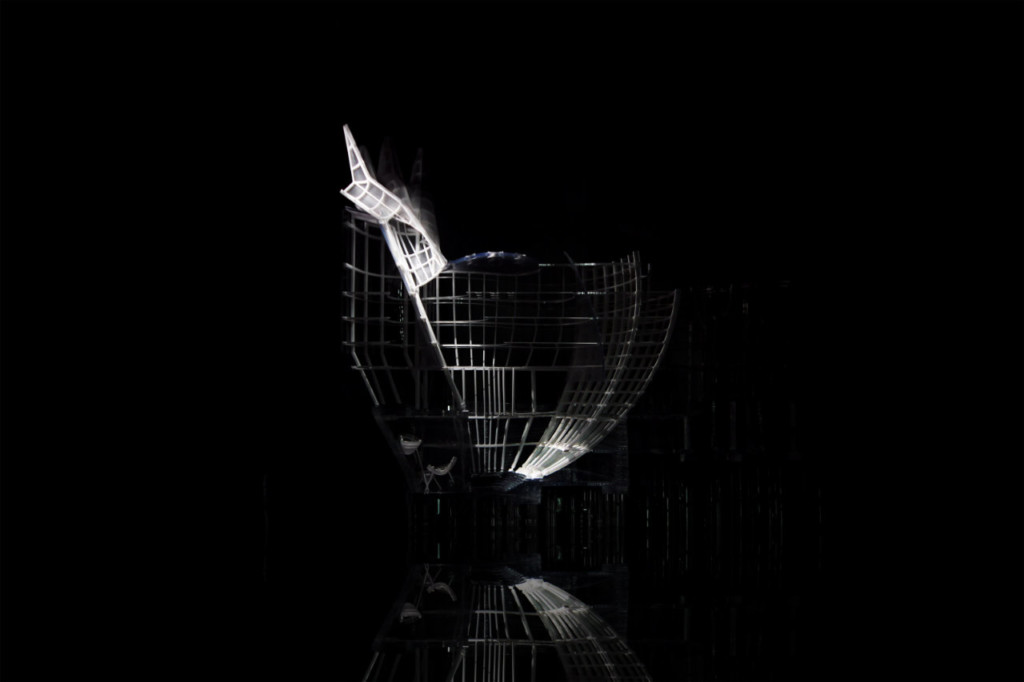
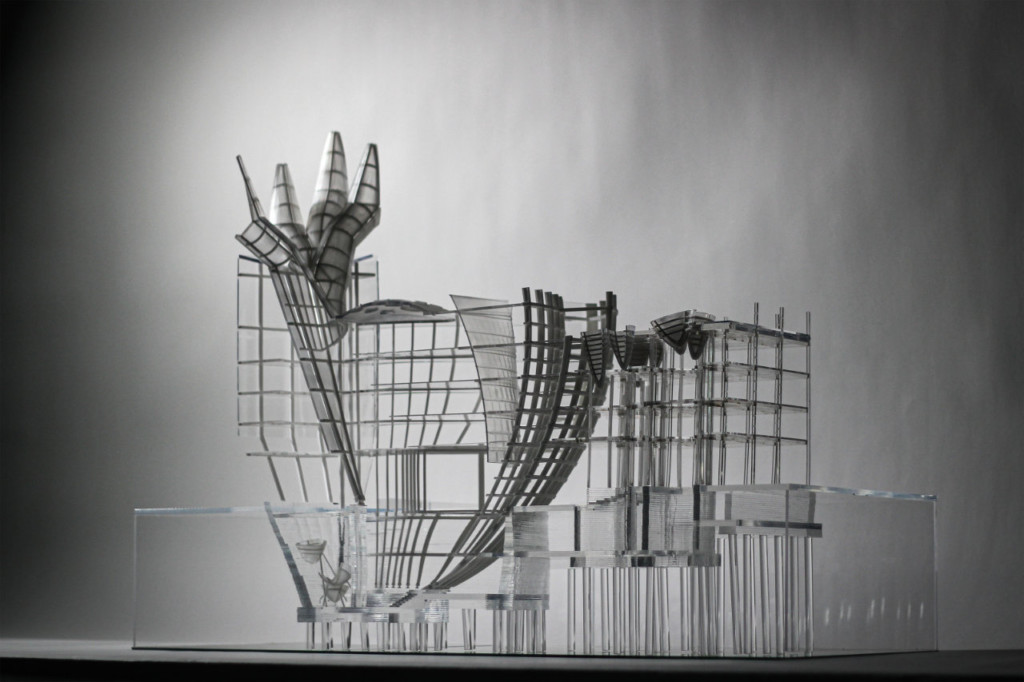
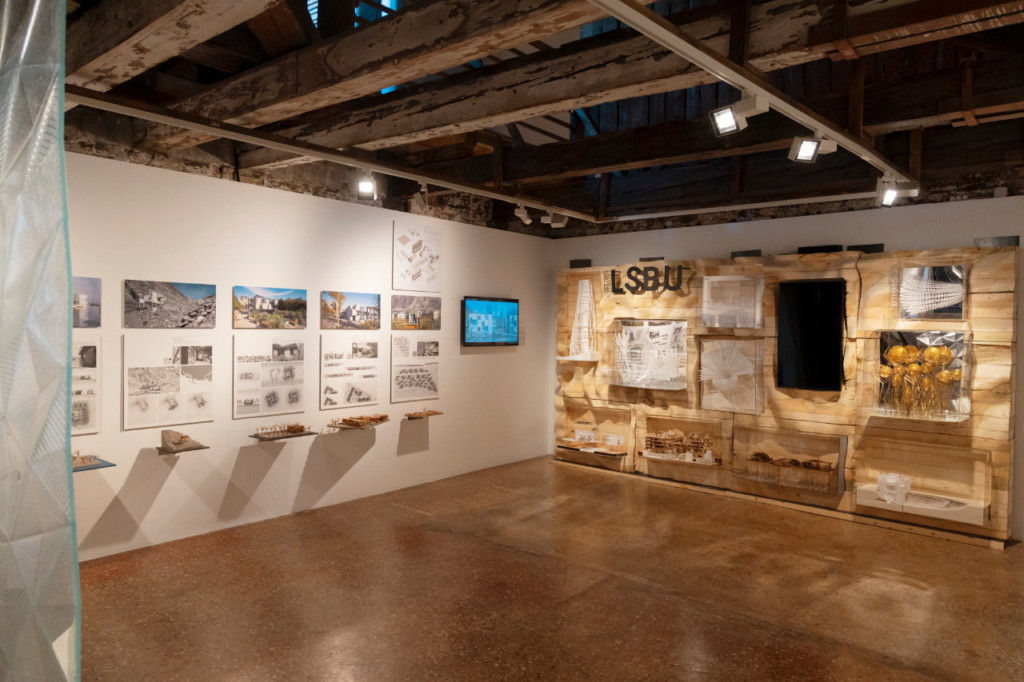
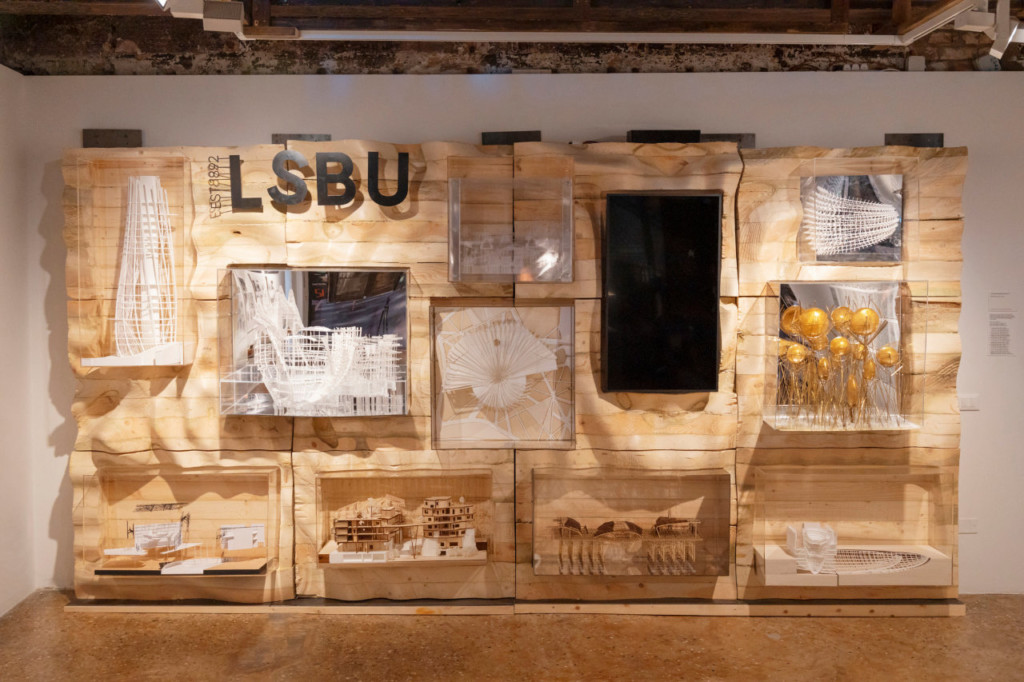
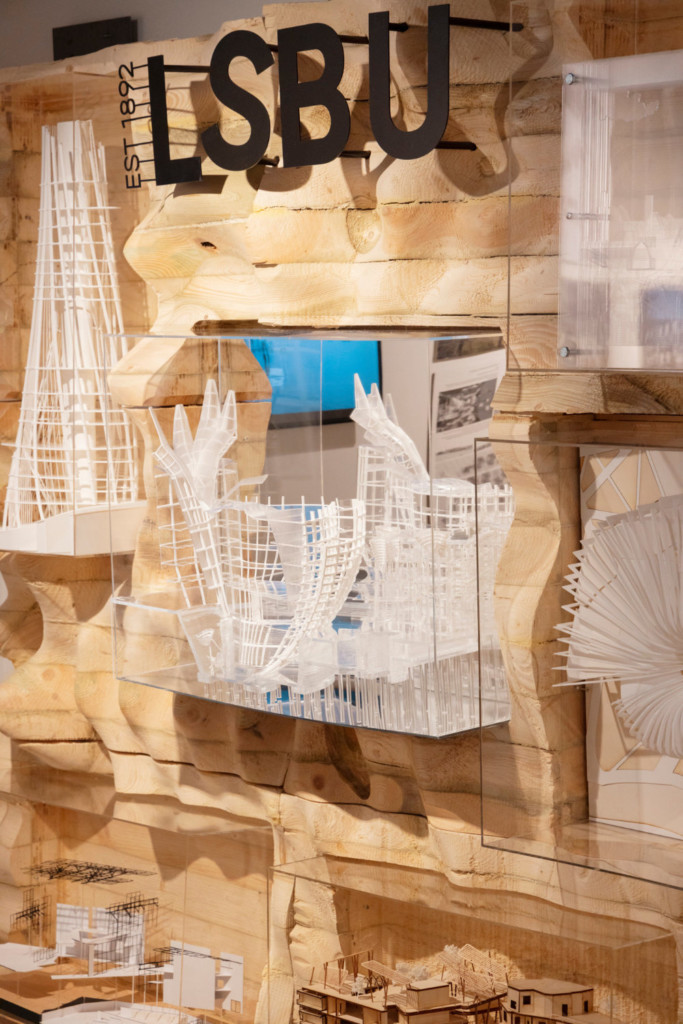
comments